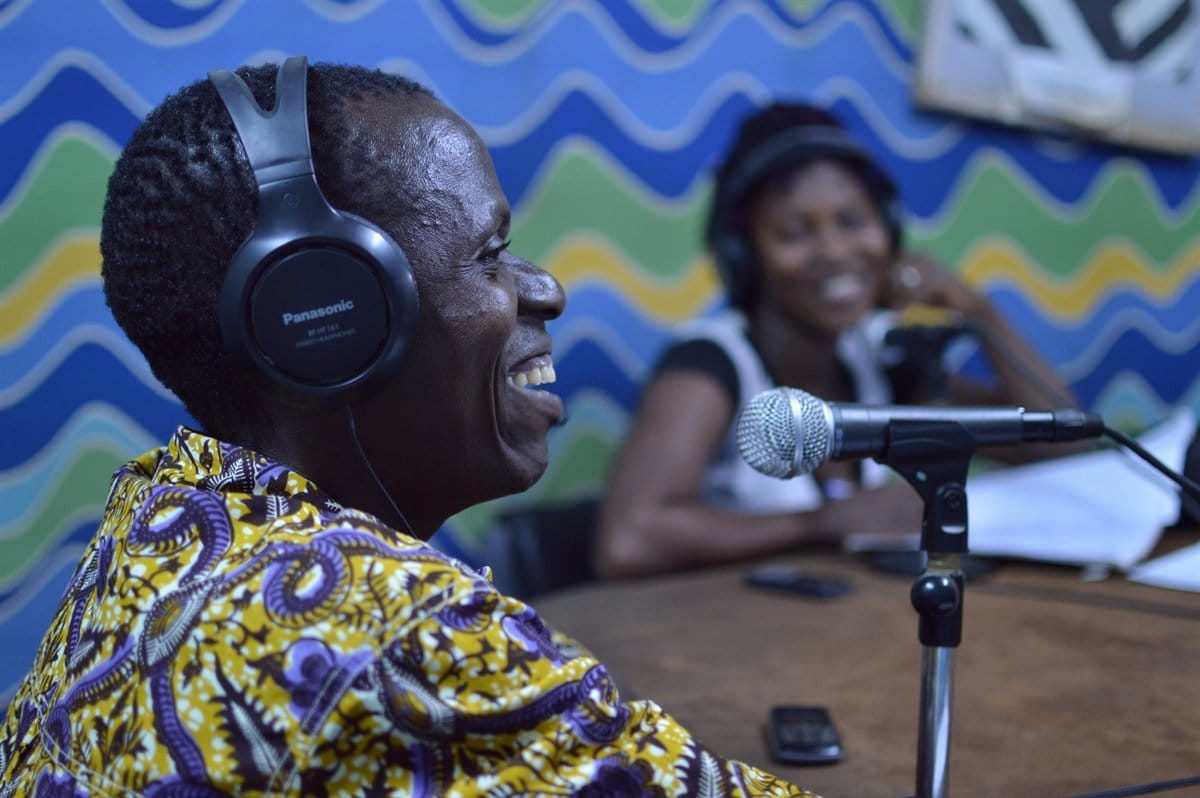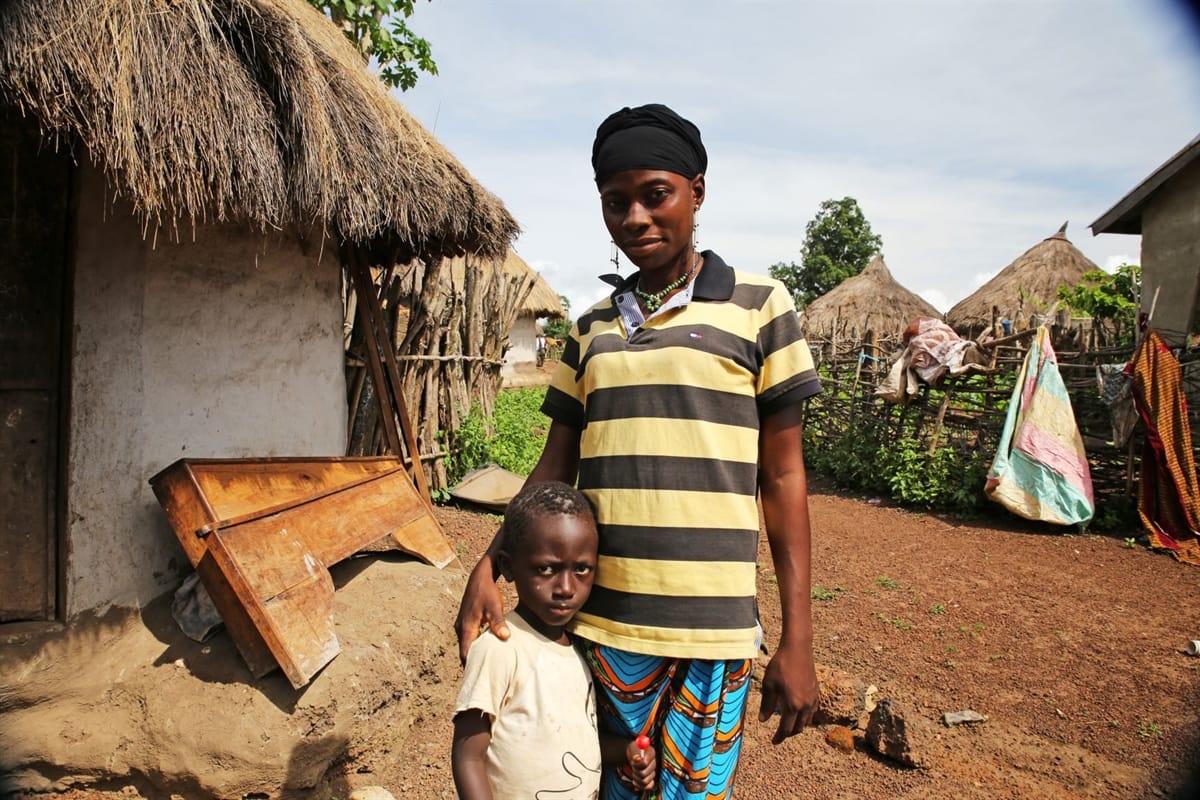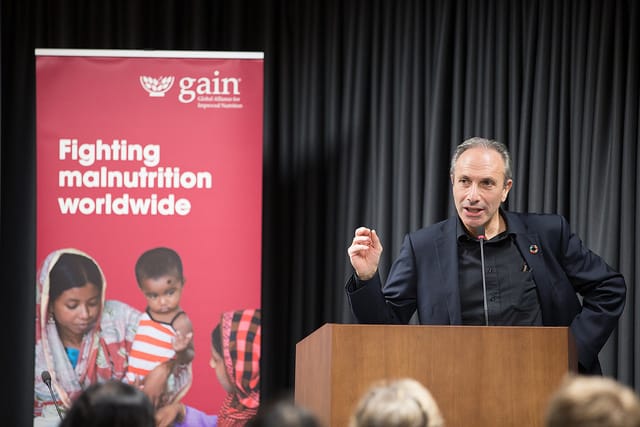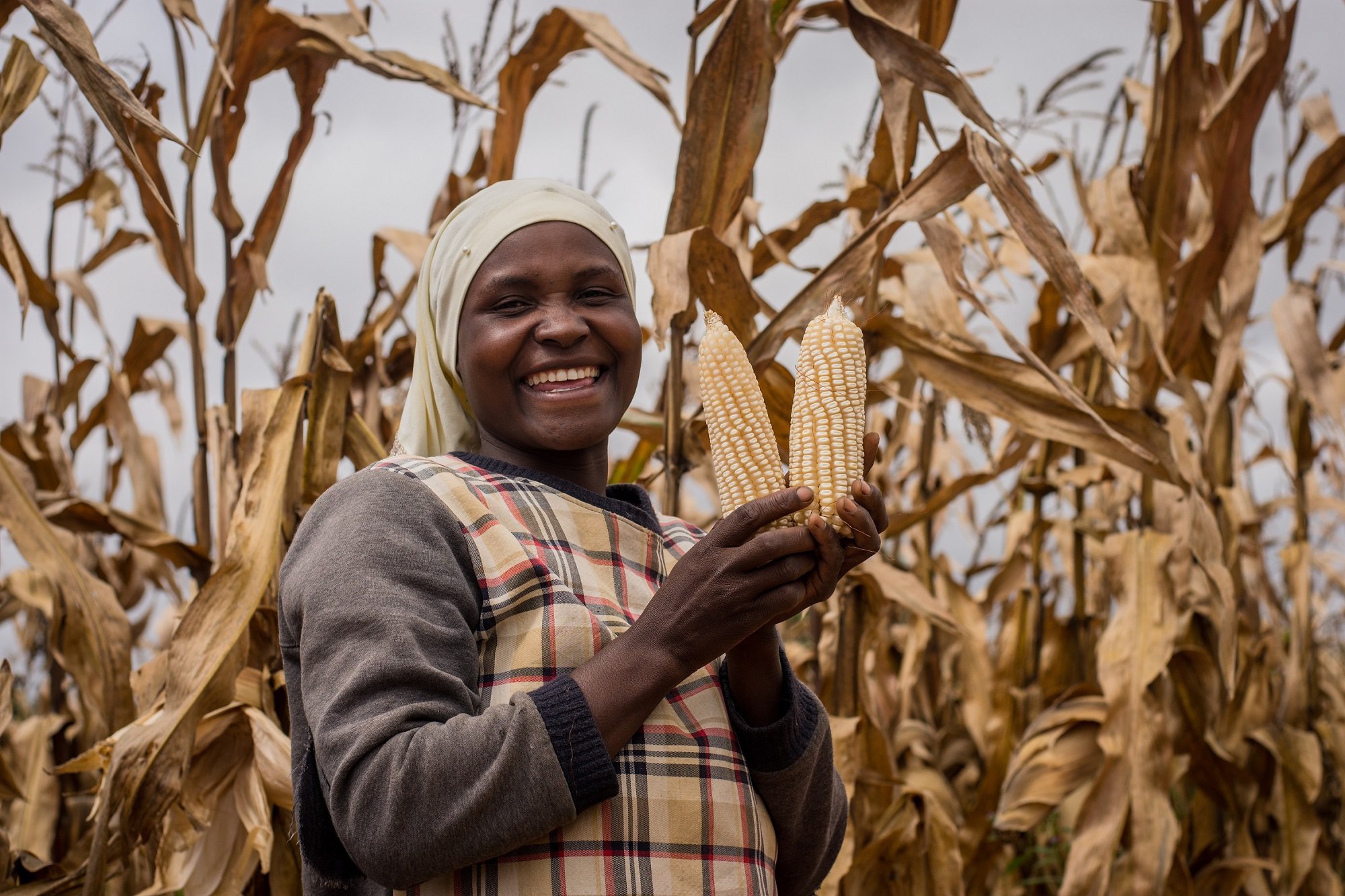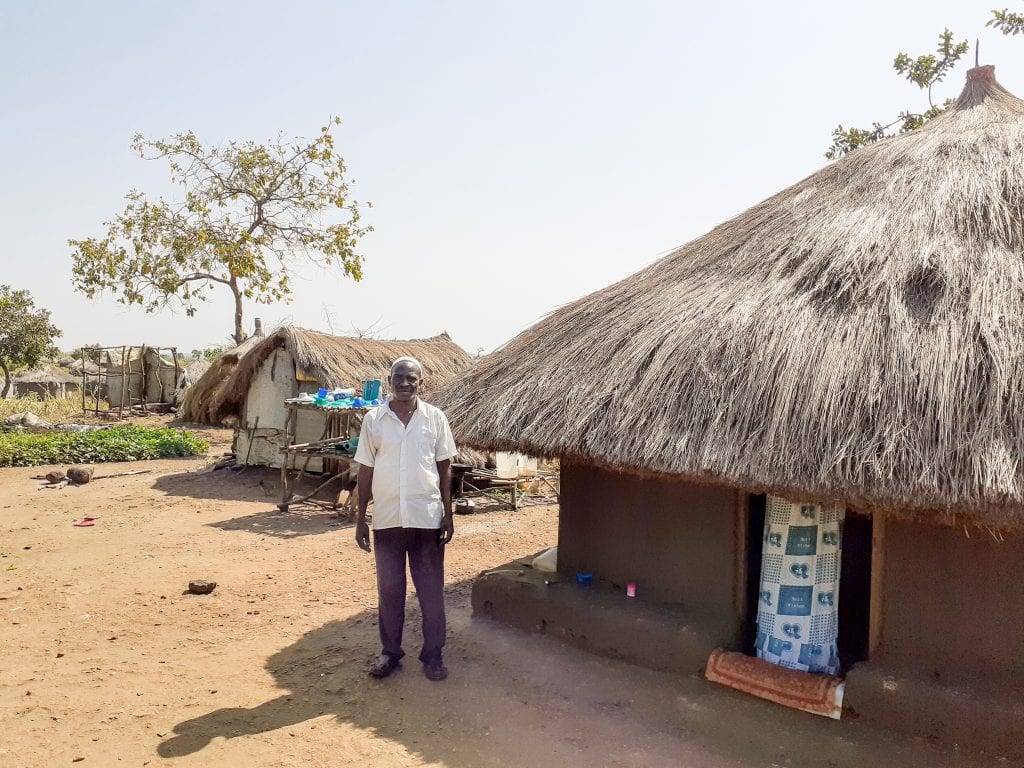A 2018 highlight for DMI was the publication of the results of our child survival trial in Burkina Faso. This randomised controlled trial (RCT) was the first to demonstrate that mass media can change health behaviours.
The campaign used DMI’s ‘Saturation+’ methodology, broadcasting radio spots 10 times a day, 365 days a year. It promoted health-seeking behaviours, including ante-natal care attendance, health facility deliveries and primary care consultations for malaria, pneumonia and diarrhoea. The campaign was broadcast on seven radio stations (with a radii of approx. 50km) between 2012-2015. Seven other radio station areas acted as control zones. The trial was run by DMI and evaluated by the London School of Hygiene and Tropical Medicine.
BBC World News report on the effects of DMI’s radio campaign in Burkina Faso
Routine data from health facilities were analysed for evidence of changes in treatment-seeking. After one year of the campaign, the number of children with malaria, pneumonia and diarrhoea taken to health facilities increased by 56%, 39% and 73% respectively, compared to control zones (all p<0.001).
Using the Lives Saved Tool (LiST), we were able to estimate the impact of the intervention on child mortality. We found that the increase in treatment seeking corresponded to a mortality reduction of 9.7% in year 1, and that over the course of the three-year campaign, approximately 3,000 lives were saved by the campaign.
Mortality predictions for Burkina Faso and other countries were used to calculate the cost-effectiveness of this intervention, using Disability-Adjusted Life Years (DALYs) as the metric (equivalent to the cost of one year of healthy life added). These results show that mass media campaigns based on Saturation+ principles are among the most cost-effective methods available for saving children’s lives.
Watch an animation of our RCT results, and the story of Mariéta, whose life was saved by the campaign.
Learn more about the results in Reuters, on BBC World News or by reading in the published papers in BMJ Global Health. More details are also available on DMI’s website.
